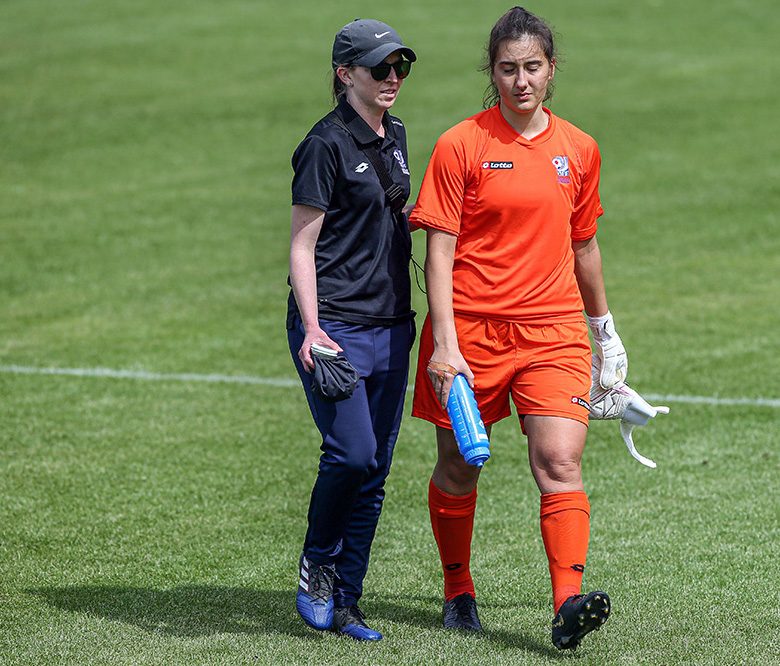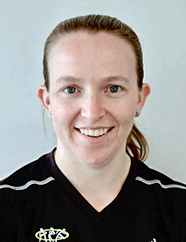By their nature, action sports force players to test themselves against gravity and velocity.
News that FIFA will stage the Women's World Cup in New Zealand in 2023 has inspired young players and led to growing excitement about the 'Beautiful Game'. It has also raised questions about the effects of repetitive 'head-knocks' and added impetus to postgraduate research by Rebecca Blyth at the School of Physiotherapy into the causes, implications and effects of concussion in women's sport.
Just heading the ball needs split-second judgements about ball velocity and direction and the location of other players, and compelling evidence suggests that the cumulative effects of even minor 'head-knocks' left untreated, can be severe.
Rebecca wants to know why female football players suffer higher rates of concussions than males.
Her initial broad scoping study takes a 'snapshot' of existing evidence and uncovers gaps so that future research can be more focused.
Intense international interest
Rebecca chose to advance her postgraduate physiotherapy studies at Otago for a career in the elite sporting arena. The School's established sports physiotherapy programme and papers delivered by distance allow her to maintain a clinical practice in Auckland and hold her place as midfield centre in the Papakura Women's Conference football team.
These research papers form part of Rebecca's Masters in Sports Physiotherapy by coursework, build upon sustained clinical interest in this area at Otago, and complement the work of researchers worldwide, including those at Duke University in the United States. Some of the initial impetus for research at Duke has come from the experience of top-league American football - or gridiron - players, and the demonstrated connections between high impact head injuries and their life-affecting consequences which include depression.
Her investigations into what may be unique causal factors of concussion in sportswomen will detail a range of possible gender-associated variants including neck strength and hormonal factors.
Early interventions needed
A concussion, if it happens in the heat of an important match, may go untreated, and dismissed as a mere 'head-knock' yet it is critical to identify symptoms of head trauma early and to report such incidents despite the drive to play on.

Rebecca assists New Zealand goalkeeper Nadia Olla from the field following a concussion incident - Credit: Shane Wenzlick, Phototek
All sporting activities involve a degree of physical risk, yet this research may make it possible to change existing football rules and add interventions such as time out to improve safety margins for players. Improved education for both players and match officials which is based on thorough clinical research, can reduce incidences of concussion and lessen its effects.
While Rebecca Blyth's investigations are in their early stages, she is confident that her postgraduate coursework at the School of Physiotherapy will improve player safety and bring this pressing issue to the clear attention of players and whānau, administrators and the wider public.
Rebecca Blyth holds a Bachelors in Health Science (Physiotherapy) from AUT and a PG Diploma in Sports Physiotherapy from the University of Otago. She is a recent (2020) recipient of a University of Otago Coursework Master Scholarship.
Useful links
Contact us about postgraduate opportunities at the School of Physiotherapy
Postgraduate profile

Publications
Lawrence, R. (2005). Branding terroir in the ′New World′: Modes of representation in the wine industry. In P. Sorrell, C. Ozcan, E. Kocabiyik & Z. T. Ultav (Eds.), Proceedings of the IST Product and Service Design Symposium and Exhibition on Agricultural Industries. Izmir, Turkey: Izmir University of Economics. [Full Paper]
